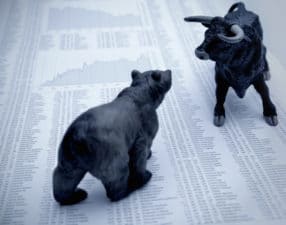In January, I’d discussed why I thought restaurant stocks were a solid bet in 2019. Prices at restaurants were set to surge again this year. The stock we will cover today had roared out of the gate. Is it a suitable addition to your portfolio in the middle of March? Let’s find out.
Restaurant Brands (TSX:QSR)(NYSE:QSR) is the consolidation of Burger King, Tim Hortons, and Popeyes Louisiana Chicken into one of the largest quick-service restaurant chains in the world. Shares of RBI have climbed 17.4% in 2019 as of close on March 13. The stock is up 12.4% year over year.
RBI’s struggles with the Tim Hortons brand have been in the news often in the past few years. Opposition from a group of Canadian franchisees have produced headaches for management. These tenuous developments have been exacerbated by disappointing sales in comparison to the hot Burger King brand and even a resurgent Popeyes brand.
The company released its fourth-quarter and full-year results on February 11. For the full year, RBI posted system-wide sales growth of 7.4% and net restaurant growth of 5.5%. It reported adjusted diluted earnings per share of $2.63 compared to $2.10 in 2017. Adjusted EBITDA generated 4.1% organic growth.
RBI touted its “Winning Together” plan at Tim Hortons. System-wide sales growth was static at 2.4% in the fourth quarter, but the Tim Hortons brand reported comparable sales growth of 1.9% compared to 0.1% in Q4 2017. For the full year, the chain posted 0.6% growth in comparable sales compared to negative 0.1% growth in the prior year.
As expected, the “Winning Together” push resulted in higher SG&A expenses in the fourth quarter and for the full year. Tim Hortons saw segment SG&A rise to $76 million in Q4 2018 compared to $20 million in the prior year. For all of 2018, the chain reported segment SG&A of $314 million over $91 million. Adjusted EBITDA shrank marginally to $1.12 billion compared to $1.13 billion in 2017.
Burger King and Popeyes both reported 8.9% system-wide sales growth. This was a slight downtick for Burger King, which hit double-digit percentage growth in 2017. Popeyes saw a sizable jump from 5.1% system-wide sales growth in the previous year.
In the fourth quarter, the board of directors declared a quarterly dividend of $0.50 per share. This represents a 2.4% yield.
RBI stock shot up into overbought territory in late January after pre-releasing its fourth-quarter and full-year sales numbers. Since then, the stock has traded at the high end of its 52-week range. Shares held at an RSI of 55 as of close on March 13. The stock is not technically oversold, but investors should be careful not to burn themselves right now.
RBI’s brands look stronger in comparison to the same time last year, but that does not make the stock a buy in this pricey market.








